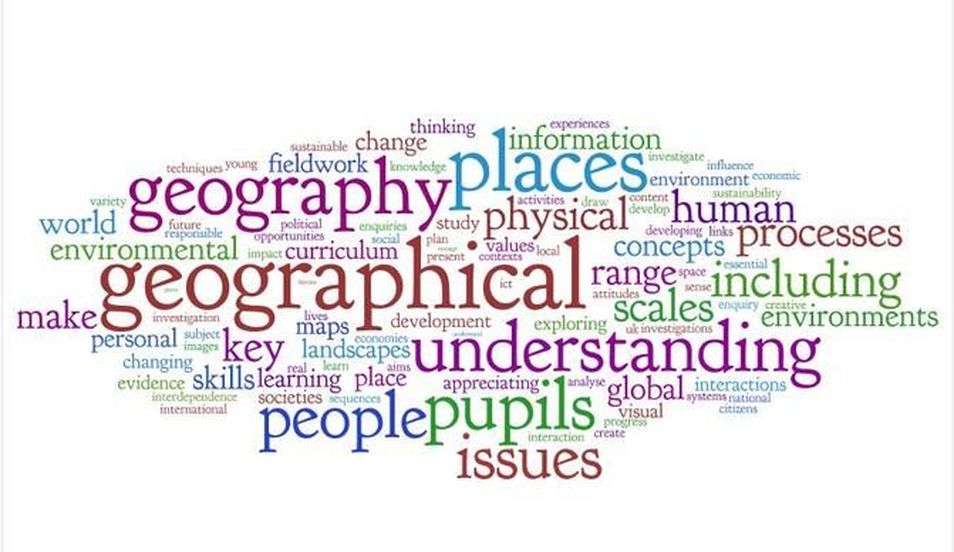Welcome to the knowledge is power page.
If we get into the habit of learning key information as we go along, then it will eventually become embedded in our long term memory. If we practise learning, revisiting or retrieving knowledge five times over the space of a few weeks or months it should stick. This makes it easier to remember stuff for exams. If we get into this good habit now, then by the time we come to do our GCSEs we will be used to the process. You will have noticed that your lessons start with 'Knowledge Recall'. This usually covers topics from last lesson, last topic, last unit or last year. Practice makes perfect!
Get into the habit of reading through your books and picking out key words and learning them. No 'official' homework? Get your knowledge organiser and/or your core and powerful knowledge sheets and rehearse the key words and facts. Make crossword clues for them or even make a set of dominoes (template here). Once you are 'fluent' you will have this knowledge readily available, so in the exams you can focus upon applying the knowledge to the question.
Get into the habit of reading through your books and picking out key words and learning them. No 'official' homework? Get your knowledge organiser and/or your core and powerful knowledge sheets and rehearse the key words and facts. Make crossword clues for them or even make a set of dominoes (template here). Once you are 'fluent' you will have this knowledge readily available, so in the exams you can focus upon applying the knowledge to the question.
Speak and write like an expert.....
Know your geo-lingo! If you can use key terminology accurately, and with confidence you will 'WRITE IMPRESSIVELY' and your answers will stand out from those who don't and immediately impress the examiners. I know there's lots of it but if you rehearse the words, their spellings and definitions they will eventually stick, just like those song lyrics you listened to endlessly so you could be word-perfect!!! See how you do on the 'Memory Geogger questions' [below]. Ideally, make flashcards of those that you can't remember then practice those. Get someone at home or a friend to test you again and again.
Know your geo-lingo! If you can use key terminology accurately, and with confidence you will 'WRITE IMPRESSIVELY' and your answers will stand out from those who don't and immediately impress the examiners. I know there's lots of it but if you rehearse the words, their spellings and definitions they will eventually stick, just like those song lyrics you listened to endlessly so you could be word-perfect!!! See how you do on the 'Memory Geogger questions' [below]. Ideally, make flashcards of those that you can't remember then practice those. Get someone at home or a friend to test you again and again.
Knowledge Memory Geoggers
Component 1: Our Natural World
Unit 1: Global Hazards here
Unit 2: Changing Climate here
Unit 3: Distinctive Environments here
Unit 4: Sustaining Ecosystems here
Unit 5: Urban Futures here
Unit 6: Dynamic Development here
Unit 7: UK in the 21st century here
Unit 8: Resource Reliance here
Unit 1: Global Hazards here
Unit 2: Changing Climate here
Unit 3: Distinctive Environments here
Unit 4: Sustaining Ecosystems here
Unit 5: Urban Futures here
Unit 6: Dynamic Development here
Unit 7: UK in the 21st century here
Unit 8: Resource Reliance here
Knowledge Memory Geoggers ANSWERS
Component 1: Our Natural World
Unit 1: Global Hazards here
Unit 2: Changing Climate here
Unit 3: Distinctive Environments here
Unit 4: Sustaining Ecosystems here
Component 2: People and Society
Unit 5: Urban Futures here
Unit 6: Dynamic Development here
Unit 7: UK in the 21st century here
Unit 8: Resource Reliance here
Unit 1: Global Hazards here
Unit 2: Changing Climate here
Unit 3: Distinctive Environments here
Unit 4: Sustaining Ecosystems here
Component 2: People and Society
Unit 5: Urban Futures here
Unit 6: Dynamic Development here
Unit 7: UK in the 21st century here
Unit 8: Resource Reliance here
There's so much to learn .....
We know ..... but there are some great tools out there to help you.
Ultimately it is about rehearsing and practising to make things stick.
If we do this five times for each fact, over a period of time, it moves from our short term memory to our long term memory.
eg read the fact today, repeat tomorrow, repeat the week after, the week after and then a month later. This is called 'spaced retrieval' Think of it a bit like putting your knowledge in a filing cabinet, then re-visiting it to make sure it is still there and in the right order.
There are some great tools out there on the internet to help us........ here's a few for starters.
We know ..... but there are some great tools out there to help you.
Ultimately it is about rehearsing and practising to make things stick.
If we do this five times for each fact, over a period of time, it moves from our short term memory to our long term memory.
eg read the fact today, repeat tomorrow, repeat the week after, the week after and then a month later. This is called 'spaced retrieval' Think of it a bit like putting your knowledge in a filing cabinet, then re-visiting it to make sure it is still there and in the right order.
There are some great tools out there on the internet to help us........ here's a few for starters.
Seneca Learning
11H1 click here
10H/Gg2 click here
Other students please click here
Free to sign up to.
Search for OCR B GCSE Geography
10H/Gg2 click here
Other students please click here
Free to sign up to.
Search for OCR B GCSE Geography
|
|
|
Quizlet
Quiz based/flash card learning.
Search for AbDabGeography and your class. Invitation Link for 11H1 here
or search for 'Quizlet' in your web browser.
Search for AbDabGeography and your class. Invitation Link for 11H1 here
or search for 'Quizlet' in your web browser.
BBC Bitesize OCR B GCSE Revision materials here
Knowledge Organisers
Component 1: Our Natural World
Unit 1: Global Hazards here
Unit 2: Changing Climate here
Unit 3: Distinctive Environments here
Unit 4: Sustaining Ecosystems here
Component 2: People and Society
Unit 5: Urban Futures here
Unit 6: Dynamic Development here
Unit 7: UK in the 21st century here
Unit 8: Resource Reliance here
Multi Unit Knowledge Organiser: Units 1, 3, 5 & 7 see pdf below
Unit 1: Global Hazards here
Unit 2: Changing Climate here
Unit 3: Distinctive Environments here
Unit 4: Sustaining Ecosystems here
Component 2: People and Society
Unit 5: Urban Futures here
Unit 6: Dynamic Development here
Unit 7: UK in the 21st century here
Unit 8: Resource Reliance here
Multi Unit Knowledge Organiser: Units 1, 3, 5 & 7 see pdf below
| 2018_summer_exam_week_ko.pdf | |
| File Size: | 1338 kb |
| File Type: | |
|
DIY: Build Up Your Schema
Try to make as many links as you can at every opportunity!!! |
Your browser does not support viewing this document. Click here to download the document.
Online revision lessons
|
tutor2u live revision sessions here
Useful topics: water, food, coasts, rivers, glacial landscapes, TRFs, cold environments, weather hazards, tectonic hazards |



